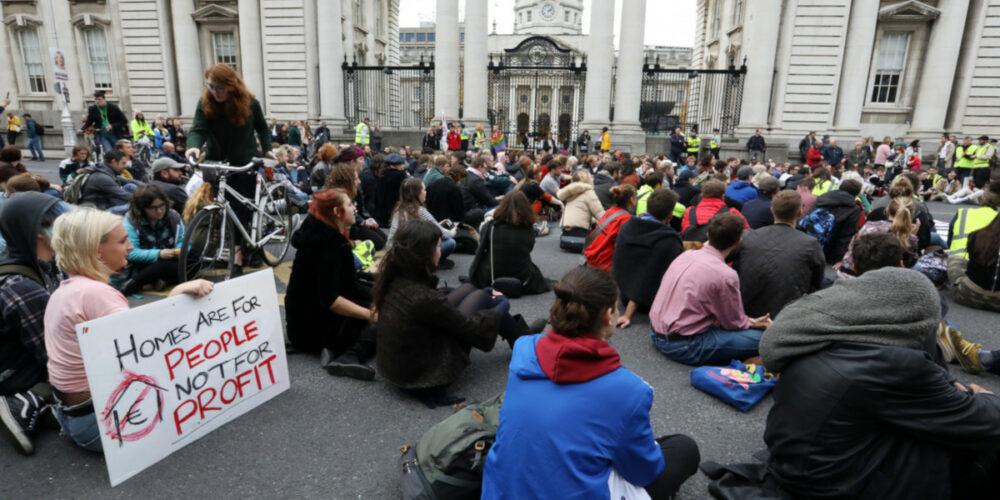So it’s an Irish Socialist Republic or nothing?—where the people of Ireland will eventually own the means of production and distribution of the wealth, an independent, sovereign and socialist Ireland, free from the grip of imperialism.
Where are we now with that project and how long will it take to first slow, then stall the “express train of imperialism” and finally derail it?
Relatively speaking, we are a small force, even in Ireland. Centuries of conditioning by church, state, media and education, and hard experience, have left the class-consciousness of a very large proportion of people in—well, poor condition, to put it mildly. There are several mountains to climb—big ones.
The soccer “Super League,” sport in general, shopping therapy, fashion, now social media—all make for major distractions that defuse any notions of thinking about the state we are in. In reality, people have to live: pay bills, work, pay a mortgage, and more. People’s minds are, understandably, fixed elsewhere.
The pressure on the poor and the working poor is enormous and likely to grow. After covid comes austerity—at least that’s what power has planned for us. The question for activists, socialists and communists is, How exactly do we intervene in people’s lives (a) to get them to think differently and hopefully (b) to get them to actually participate in confronting their oppressor. That’s a major issue.
In struggle it is never possible to get 100 per cent participation in the “front line.” There are always several “lines.” There will be a percentage (the smallest) who will be the “cutting edge,” the vanguard, another percentage who assist and are in and out of different phases of struggle. Then there’s a larger percentage of the population who, no matter what, will be lukewarm—neither cold nor hot, not actively with you but not diametrically opposed to you either. They will also ebb and flow according to the progress, or not, at any stage of the struggle. That’s a critical section of the population.
There is always going to be a tiny number of people who, even in the “Irish Socialist Republic,” will never be for you, and may well work against you.
Now, none of the above is scientific, but it comes from long years of experience and observation of the reality on the ground, during struggle.
At what point are the actions of activists who are at present working in communities all over Ireland progressive, transformative, or reformist? Day to day or at the end of the year, how do we measure that? Or do we just plod on, year in, year out? Can we say with any confidence that the social enterprise or co-op that has been established in Co. Tyrone or Fermanagh has even the potential to be transformative, a transformative reform, or just a waste of time and energy?
The greater part of community work is ultimately financed by capitalism, and they will always try to co-opt you. If you start to look like a communist and begin to really threaten the status quo, they will turn off the tap. And then what?
Even if you pre-empt their moves and build a successful source of income through social enterprises or co-ops, will you survive the onslaught of capitalism and the market? Do we abandon all this work and concentrate on exposing the crimes of neoliberalism and capitalism? Will direct action and electoralism form part of a potential other strategy?
On the one hand, activists need to become embedded in their communities. On the other hand, they need to avoid being “lost in the swamp.” Can Karl or Vladimir help us, please?






